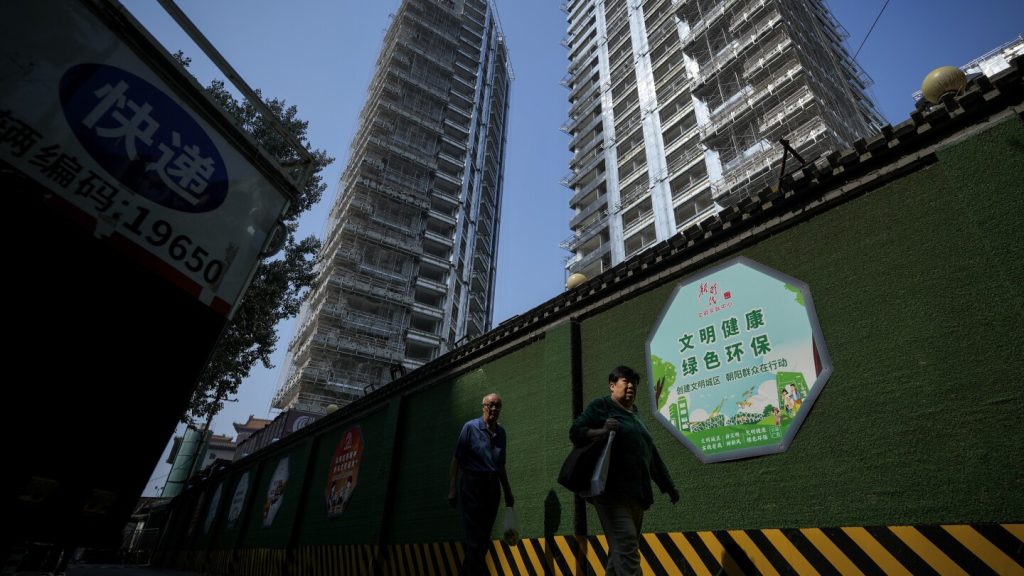In an effort to stabilize the property market, China announced plans to expand financing for housing projects on a “white list” to 4 trillion yuan ($562 billion). Minister of Housing and Urban-Rural Development Ni Hong revealed this decision during a news conference in Beijing, mentioning that measures would also be taken to redevelop 1 million urban villages across the country. Although the scale of funding for the redevelopment was not specified, Ni stated that the housing market had “bottomed out” after three years, with October data showing an increase in property sales. The government’s aim is to reverse the slump in the property industry, which has become a drag on China’s economy.
Furthermore, authorities announced that local governments would be allowed to utilize funds from unallocated government bond quotas and raise debt ceilings to support the property market. In late September, the outstanding mortgage rates for individual borrowers were reduced by an average of 0.5 percentage points, and the minimum down payment ratio on purchases of second homes was lowered to 15% from 25%. These measures were part of the government’s efforts to mitigate the downturn triggered by a crackdown on excess borrowing in the property market. Despite these actions, some analysts believe that the current measures may not be sufficient to solve China’s property crisis in the near future. Stephen Innes, managing partner at SPI Asset Management, expressed concerns that the issue might take years or even decades to resolve.
In January, Chinese officials unveiled a list of housing projects that would be eligible for financing. By Wednesday, loans for such projects had already reached 2.23 trillion yuan ($313 billion), according to Xiao Yuanqi, deputy director of the National Financial Regulatory Administration. This initiative was part of the government’s strategy to boost investment in the housing sector and revitalize the market. However, the challenges facing the property industry remain significant, with experts warning that the issue is complex and will require long-term solutions to address. The persistent nature of the crisis suggests that more comprehensive and sustained efforts will be needed to achieve a lasting recovery in the property market.
The government’s recent focus on stabilizing the property sector reflects its recognition of the industry’s importance to China’s overall economic health. As a key driver of growth in the past, the property market’s decline has raised concerns about its impact on the broader economy. By implementing measures to increase financing for housing projects and support urban redevelopment, officials are signaling their commitment to addressing the challenges facing the sector. However, as experts caution, the road to recovery may be lengthy and require patience, as the underlying issues contributing to the property crisis are deeply rooted and complex. Despite the government’s efforts, the ultimate resolution of the property market’s woes may require a sustained and coordinated approach from policymakers, industry stakeholders, and other relevant parties.
In conclusion, China’s decision to expand financing for housing projects and support urban redevelopment is a significant step in its efforts to stabilize the property market and reverse the ongoing slump in the industry. While the measures implemented thus far have shown some positive signs, analysts warn that the challenges facing the sector are deep-seated and may take years to address fully. As the government continues to pursue strategies to boost investment and stimulate growth in the housing market, the ultimate outcome remains uncertain. However, the commitment shown by policymakers in addressing these issues underscores the importance of the property sector to China’s economy and the need for sustained efforts to achieve a lasting recovery.


